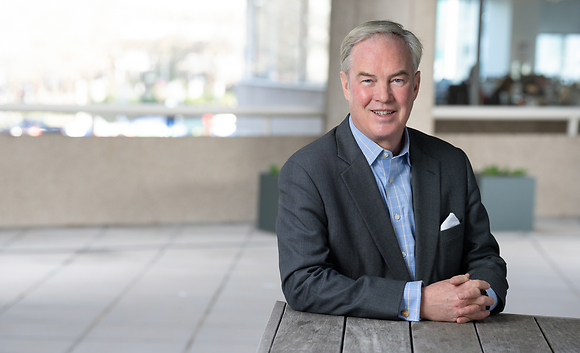MPR News Speaks With Trevor Potter on Dynamics of Campaign Finance System
09.02.2015
MPR News
MPR News spoke with Trevor Potter on the dynamics of the current campaign finance system and a few ways that states and local governments are making their elections more open to small donors. For the complete article, please visit MPR News' website.
Donald Trump as political donor
Caplin and Drysdale lawyer and former FEC Chair Trevor Potter said Trump fits squarely what Larry Lessig defines as 'the dependency system' where "public officials become dependent on their donors and, therefore, don't want to upset them."
...
How did we get here?
In the Supreme Court case, Buckley v Valeo the court "acknowledged that huge contributions come with strings -- that donors are expecting something and that the average member of the public is going to be suspicious of government because they're going to fear it has been bought by large donors," said Potter.
"Not only do large donations have the tendency to corrupt, but a system that exists on the large donations has a tendency to turn everyone else off," Potter added.
The problem with SuperPACs
Potter: "The Supreme Court's theory has been that outside groups won't corrupt and therefore can spend limited sums of money because they are wholly and totally independent of candidates. The reality is that almost all of these outside groups are run by former employees of the candidate, by relatives of candidate, or close friends who also are raising money directly for the candidate so they are in reality closely tied."
"The presidential candidates set up super PACs before they became a presidential candidate. So they're really their own creation run by their own people who were placed there by the candidates," Potter said. The Supreme Court's test "that they're wholly and totally independent of the candidates clearly is not met."
Donald Trump as political donor
Caplin and Drysdale lawyer and former FEC Chair Trevor Potter said Trump fits squarely what Larry Lessig defines as 'the dependency system' where "public officials become dependent on their donors and, therefore, don't want to upset them."
...
How did we get here?
In the Supreme Court case, Buckley v Valeo the court "acknowledged that huge contributions come with strings -- that donors are expecting something and that the average member of the public is going to be suspicious of government because they're going to fear it has been bought by large donors," said Potter.
"Not only do large donations have the tendency to corrupt, but a system that exists on the large donations has a tendency to turn everyone else off," Potter added.
The problem with SuperPACs
Potter: "The Supreme Court's theory has been that outside groups won't corrupt and therefore can spend limited sums of money because they are wholly and totally independent of candidates. The reality is that almost all of these outside groups are run by former employees of the candidate, by relatives of candidate, or close friends who also are raising money directly for the candidate so they are in reality closely tied."
"The presidential candidates set up super PACs before they became a presidential candidate. So they're really their own creation run by their own people who were placed there by the candidates," Potter said. The Supreme Court's test "that they're wholly and totally independent of the candidates clearly is not met."
Attorneys
- Senior Counsel
